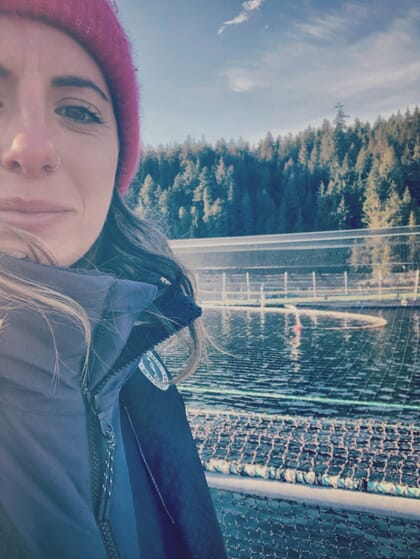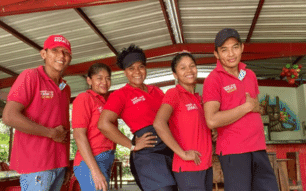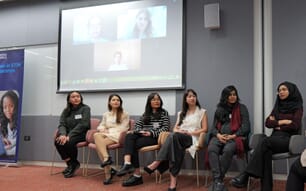
So, I thought I’d share some of my experience of working with salmon farmers and to share how good, and sometimes unexpected, things can happen.
GSI is a global CEO-led organisation, committed to using collective action to have a positive impact. The mission is not just to significantly improve the sustainability performance of salmon farming but to do so through greater collaboration and transparency. With a focus on future-oriented initiatives and accelerating industry-wide innovations, GSI’s raison d’etre is to unite forward-thinkers from the sector in activities which will accelerate salmon farming’s continued contribution to healthy and sustainable diets.
Initiation
The idea of GSI began back in 2012. I was working for a public relations agency who were asked to bring together a group of salmon farming CEOs to discuss the future of the sector and the importance of having strong sustainability credentials. What we thought would be a one-off inspirational talk, turned out to be so inspirational (thanks to Avrim Lazar) that they decided to come together to tackle sustainability challenges, and ensure salmon aquaculture was at the forefront of sustainable food production. From that room of six CEOs we quickly grew to almost half of the global salmon industry, and it was soon acknowledged that with the right projects this group had the power to significantly impact the future of the industry, and ensure it was on a sustainable trajectory.
The first steps involved determining vision, strategy and activities. And, given that it required fierce competitors to work together, we had to ensure we structured the right projects that would help achieve common goals and lift the whole industry’s environmental performance. GSI’s ambitions were determined and scoped out by the CEOs and working groups established with their technical experts. My initial role was managing the admin, shepherding them onto calls, and keeping the newly formed machinery of the group turning over. The responsibility and success of GSI has always fallen to the companies – without their input and drive, it would go nowhere.
Schooling
As a CEO-led initiative, my role involves working with this unique breed of highly accomplished and effective characters. I was able to experience first-hand the different styles, cultures and approaches the individual CEOs and their companies have. CEOs are who they are for many reasons, but as individual leaders it can sometimes be challenging to get them to work together. But what was most encouraging in GSI, was very quickly seeing their determination to do the right thing, often leaving their egos at the door and coming in with a vision of being cooperative leaders in sustainability. It was clear they weren’t here for the quick wins, or just for the positive PR. GSI was developed with the long-term in mind, to step away from the status quo and to ensure significant improvements in the sustainability of their operations.
It is the kind of initiative that inspires enthusiasm and, as I stepped up to help, the CEOs responded by giving me more and more responsibility, ultimately leading to my appointment as CEO of GSI in January 2019. My role now is to collate and combine the knowledge and experience of the companies with their vision for the future, and turn them into tangible, deliverable projects they can all get behind. Hopefully harnessing at least a few of the skills I learnt watching the CEOs in those early days.
Evolution
As is the case in too many sectors, the GSI board has been primarily male – although I am pleased to say this is changing. Across aquaculture there are many roles mastered by women, but improving the level of gender equality at senior levels is still required. Which is why, I believe, the CEOs took a bit of a risk on me. They recognised that change was not only needed on the farms, but also in their approaches – to stay at the forefront of sustainable production they need to continuously evolve and bring in new perspectives and different skills to the industry. And the best way to do that is to look beyond your traditional bubble. GSI’s biggest success has been its ability to harness the power of the collective – and, for many women, working together instead of always competing is something that comes very naturally.
The aquaculture industry has faced its share of bumps in the road; and to stand the test of time it will continually have to demonstrate its ability to adapt and innovate. If you look around the salmon producing companies, you’ll see they are already accustomed to evolution. Many began as family-run operations, but have grown to be parts of a major global industry. Their ambition may be closely linked to growing customer demands, but it is also driven by many entrepreneurial and dedicated individuals who are always looking to the future.
In my opinion, GSI is not just a case-study on industry change. It is an example of a rarely seen scenario – leaders, working together for the benefit of their organisations, to better the planet and to drive positive impact. GSI is proof that you can remain competitive and succeed while working together. Perhaps even governments would improve their performance if they took a few learnings from this private sector experience.






